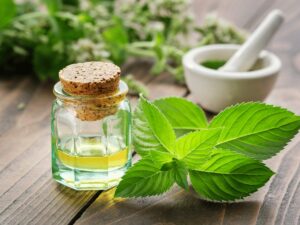Are you searching for a way to infuse your cosmetic products with scents that are captivating and natural? The allure of 100% plant-based fragrance oils is offering authenticity and purity in cosmetic industry.
With extensive experience in cosmettic industry, I bring a deep understanding of the benefits and applications of plant-based fragrance oils that can help you elevate your product appeal in the market.
100% Plant-based fragrance oils embody the perfect blend of nature’s essence and modern cosmetic innovation, offering a sustainable and health-conscious alternative for beauty brands.
In this guide, you’ll learn about the benefits and practical applications of plant-based fragrance oils, together with the tips for integrating them into your product line.
Read on to see the scent of nature!
Plant-based fragrance oils are derived from natural sources such as flowers and roots, through distillation or solvent extraction. These oils capture the essence of the plant, offering a pure and complex scent profile that is difficult to replicate with synthetic compounds. Unlike synthetic fragrances, plant-based oils are celebrated for their natural composition and connection to the earth.
The appeal of these oils are also valued for their potential therapeutic benefits. Many plant-based fragrance oils contain properties that can energize or balance the mind and body, making them a popular choice for use in cosmetics and aromatherapy products. Their biodegradability and eco-friendly nature further enhance their attractiveness to brands and consumers seeking sustainable beauty solutions.
Following an exploration into the basics of plant-based fragrance oils, it becomes evident how these natural essences can significantly enhance the perfume industry. Here are the key benefits of incorporating 100% plant-based fragrance oils into perfumes:
Plant-based fragrance oils offer a complexity and depth of scent that synthetic fragrances struggle to copy. Each oil brings its unique aromatic profile, which can add a multifaceted character to perfumes, creating an immersive sensory experience.
Plant-based oils when properly sourced and used, tend to be gentler on the skin, making perfumes that incorporate them more suitable for sensitive users. I’ve personally found plant-based oils to be a game-changer in any skincare products.
The use of 100% plant-based fragrance oils supports sustainability, as these oils are renewable and have a lower environmental impact compared to their synthetic counterparts. This aligns with the growing consumer demand for eco-conscious products in the beauty and personal care industry.
Beyond their scent, many plant-based oils possess therapeutic properties that can contribute to the wearer’s well-being. Perfumes made with these oils can offer calming, energizing, or mood-enhancing effects, adding a layer of value beyond fragrance alone.
Here’s a table that outlines the therapeutic benefits of using plant-based oils in perfumes:
| Aspect | Description | Benefit |
| Calming Effects | Certain plant-based oils in perfumes have properties that can soothe and relax the mind and body. | Enhances relaxation and reduces stress for the wearer. |
| Energizing Effects | Oils like citrus or peppermint can invigorate the senses, providing an energy boost. | Increases alertness and energy levels, improving overall mood. |
| Mood Enhancement | Floral or exotic oils can positively affect mood, making the wearer feel happier or more peaceful. | Promotes a sense of well-being and emotional balance. |
Building on the benefits of using 100% plant-based fragrance oils in perfumes, it’s important to delve into the various types of these natural essences available. Here are some of the leading types of plant-based fragrance oils:
Floral oils capture the essence of a garden in bloom, with extracts from roses, jasmine, and lavender leading the pack in popularity. These oils are the backbone of many classic perfumes, providing a range of aromas from delicate to burning scent. Floral oils are prized for their enchanting scents and its ability to call up emotions, often forming the heart notes of a perfume that gives it character and depth.

Citrus oils are derived from the skin of fruits such as lemons and oranges. They provide an instant burst of energy to perfumes, cutting heavier scents to add a layer of freshness. According to Yahoo Finance, the market for these zesty oils is projected to hit $16.2 billion by 2032, highlighting their growing popularity in fragrance blends. This surge underscores the increasing demand for plant-based fragrance oils in the industry.

Sourced from the trunks, branches, and roots of trees such as sandalwood and vetiver, woody oils provide a solid foundation to many perfumes. These oils add warmth, depth, and longevity to fragrances, grounding them with their rich, earthy notes. Woody oils are versatile, serving as base notes that anchor the perfume and complement other fragrance families.

Herbaceous oils, derived from the green parts of plants like basil, sage, and rosemary, offer a crisp and vibrant dimension to fragrances. These oils blend well with floral and citrus oils, contributing a natural and fresh character to perfumes. Herbaceous oils are often used to create a bridge between the top and base notes, adding complexity and balance to the scent profile.

Following the exploration of the various types of 100% plant-based fragrance oils, it’s interesting to see how these natural essences can be applied across a wide range of products within the cosmetic industry. Let’s explore some of its applications below:
Plant-based fragrance oils are the soul of natural perfumery, where they are blended to create unique and captivating scents. Nako Cosmetic, utilizing these oils, crafts their perfumes to offer a spectrum of notes from top to base that interact with the wearer’s skin chemistry to produce a signature scent. The art of perfumery relies on the balance and harmony of these natural oils to craft fragrances that call up memories.

In skincare, plant-based fragrance oils are valued for their delightful aromas and with its therapeutic properties. For instance, they are incorporated into creams, lotions, and serums to offer a sensory experience while providing benefits such as hydration, soothing, and rejuvenation. The use of these oils in skincare underscores a brand’s commitment to natural and holistic beauty.

Hair care products infused with plant-based fragrance oils offer a dual benefit of enhancing hair health while leaving strands lightly scented. Integrating plant-based fragrance oils into my hair care line was inspired by my commitment to sustainability and wellness. Nako Cosmetics add plan-based fragrance oils in their shampoos, conditioners, and hair masks to nourish the scalp and promote hair growth.

The therapeutic qualities of plant-based fragrance oils make them a cornerstone in the creation of aromatherapy and wellness products. Some examples of these products include essential oils, diffuser blends, and massage oils which promote relaxation and overall well-being. Aromatherapy products designed with these oils can transform personal spaces into serene havens, enhancing mental and physical health.

Transitioning from the applications of 100% plant-based fragrance oils, it’s valuable to compare these with their synthetic counterparts to provide clarity on their distinctions. Here’s an in-depth look:
Following the comparison between plant-based and synthetic fragrance oils, it becomes clear that while plant-based options offer numerous benefits, they also face unique challenges within the industry. Here are some of the critical challenges faced by the industry:
Some plants used for fragrance oils are rare or seasonally available, limiting the ability to produce certain scents year-round. This scarcity can lead to supply chain vulnerabilities and fluctuating prices, impacting the stability of product offerings.
Keeping pace with technological advancements in extraction and processing methods is essential for the industry. However, investing in cutting-edge technology can be prohibitively expensive for smaller producers, potentially widening the gap between large and small-scale operations.
Developing unique plant-based fragrances involves significant research and development efforts. Protecting these creations through intellectual property rights can be challenging, especially when dealing with scents derived from nature.
The extraction and production of plant-based fragrance oils are often more expensive than synthetic alternatives due to the extensive amount of plant material needed. Navigating the higher costs of plant-based oils has been a challenge, but the quality they bring to my products are worth it.
After acknowledging the challenges within the plant-based fragrance industry, choosing the right plant-based fragrance oil involves some considerations. Below are the tips to guide your selection process:
Familiarize yourself with the scent profile of the oil, including its top, middle, and base notes. This understanding will help you choose an oil that complements your desired fragrance outcome and ensures the final scent aligns with your vision.
Look for oils that are 100% pure and have documentation to prove their authenticity. Pure plant-based oils offer the full spectrum of natural scent compounds, providing a more complex and rich fragrance.
Many plant-based oils offer benefits beyond their scent, such as calming, energizing, or mood-enhancing effects. Selecting oils for their therapeutic properties has always been a cornerstone of my formulation process, aiming to create products that do more than just smell good.
Compatibility testing can prevent issues such as separation, discoloration, or changes in scent after application. Through trial and error, I’ve learned the importance of meticulous testing to preserve the integrity of each fragrance.
For some insightful reads, we’ve curated a list of recommended articles just for you:
Still haven’t found what you’re looking for? Don’t hesitate to contact us. We’re available around the clock to assist you.
Exploring the world of 100% plant-based fragrance oils reveals a path to creating products that are naturally aromatic and skin-friendly. This guide has equipped you with the knowledge to navigate the selection, application, and benefits of these natural essences.
If your business is looking to delve deeper into the benefits and applications of 100% plant-based fragrance oils, Nako Cosmetic is here to assist. Contact us today to discover how we can enhance your products.
Own Your Private Label Cosmetic Line Is No Longer Difficult Here!
Don't let questions and needs hold you back. Reach out to us today.
How to Start Your Beauty Business?